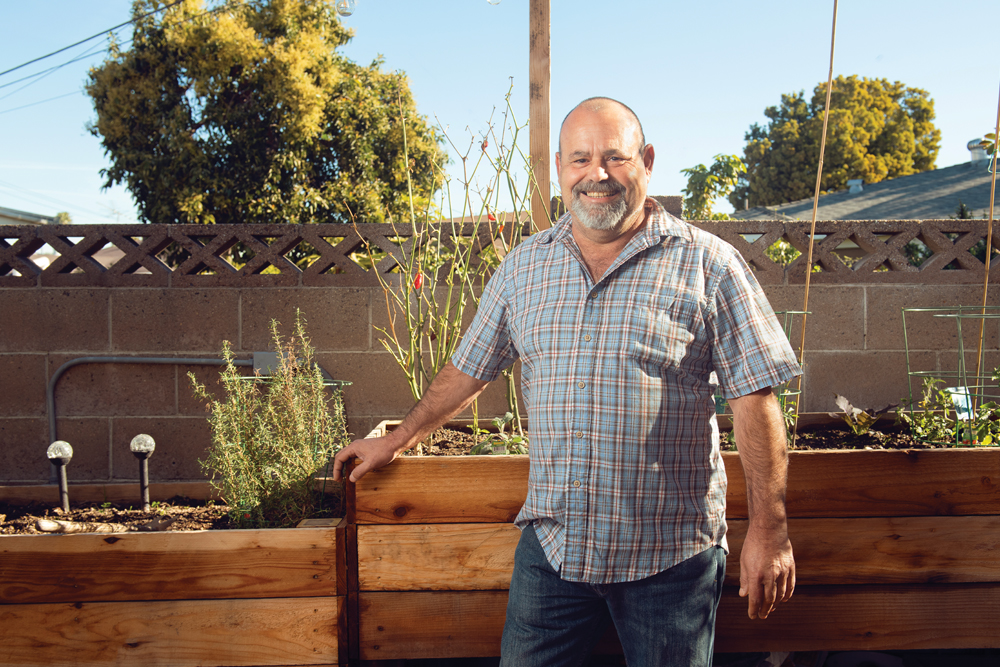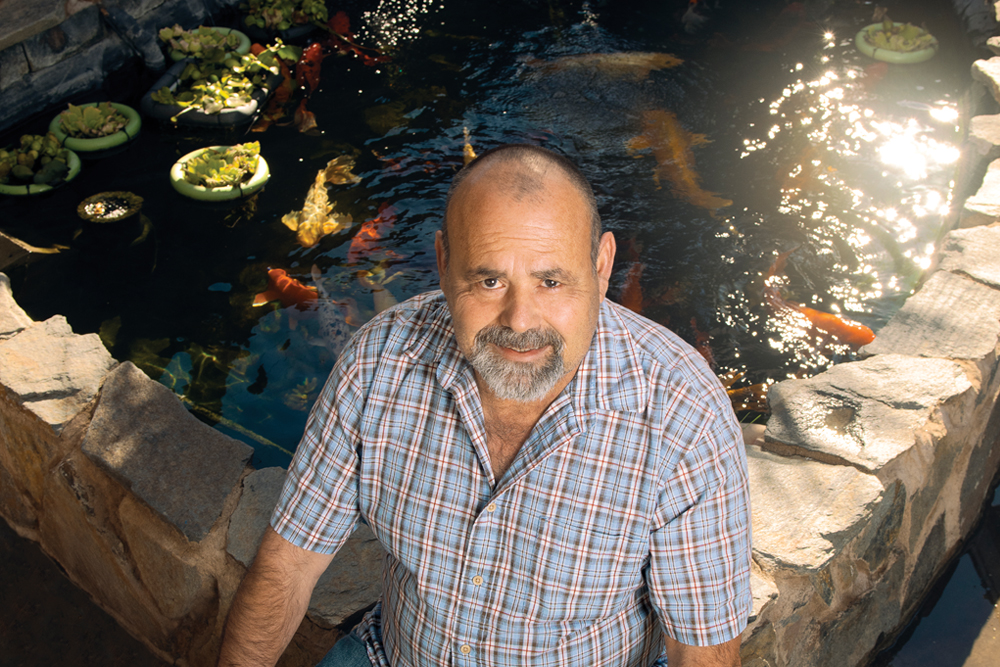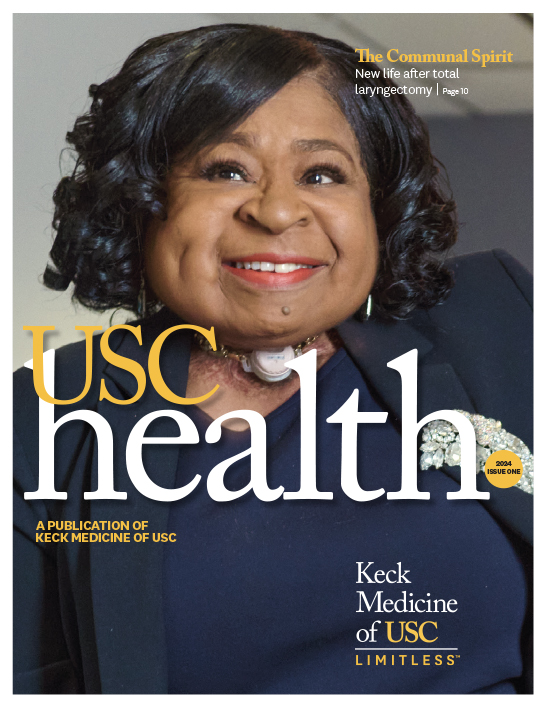
José Aguiar was already experiencing serious symptoms in his heart, foot and endocrine system when doctors found a mass in his colon.
It’s hard to imagine a heart attack saving someone’s life instead of potentially ending it. But that’s exactly what happened to José Aguiar in the summer of 2019.
José’s left foot was swollen and painful. He made an appointment to see his primary care physician.
His doctor performed an electrocardiogram. Soon after, the doctor announced to José and his wife, Maria, that an ambulance was on its way to take José to a hospital.
He was having a heart attack. But this hospital visit would reveal an even bigger problem: a potentially cancerous mass in his colon.
A team approach to complex cancer care
Doctors would need to do a biopsy to determine if the mass was cancerous. But the physicians at the community hospital felt the procedure was too risky to perform given José’s fragile state.
The medical staff reached out to area hospitals capable of taking on more complex cases. José was transferred to Keck Medicine of USC.
One benefit of having access to an academic medical center is that it provides patients with a higher level of care than most community hospitals. Advanced treatments, breakthroughs in research, and access to clinical trials tend to set them apart from other health systems.
José also benefited from Keck Medicine’s approach: A team of doctors centers the treatment plan around the unique needs of each patient. José needed a colorectal surgeon, a cardiologist and a podiatrist.
The team triaged his needs, developed a treatment plan and coordinated efforts so they could quickly deal with his most threatening conditions first.
Receiving heart care before cancer treatment
José had ischemic cardiomyopathy, a condition caused by a narrowing of the coronary arteries. As a result, José’s heart was only operating at about 20%. He also had a blood clot in one ventricle, rendering him too weak for surgery.
Eugene DePasquale, MD, medical director of the Heart Failure, Heart Transplantation and Mechanical Circulatory Support Program at Keck Medicine, was up first. To get José’s heart strong enough for surgery, a stent was placed in one of his arteries.
“At the beginning, it was a very time-sensitive situation where a lot of coordination was needed to treat his heart attack and get him well enough to treat his colon,” says DePasquale, who is also an assistant professor of clinical medicine at the Keck School of Medicine of USC.
“I can’t say enough good things about the team at USC.”
José Aguiar, patient, USC Norris Comprehensive Cancer Center
Successful operation for sigmoid colon cancer
Within a month, Dr. DePasquale notified Joongho Shin, MD, a colorectal surgeon at Keck Medicine, that José was strong enough to undergo colorectal surgery. By this time, it had been determined that the mass in José’s colon was cancerous.
When Dr. Shin operated, he discovered there was more to be worried about. José had sigmoid colon cancer that had spread to the outer layer of his bladder. This meant bringing in a urologist to help remove part of his bladder.
Though José’s colon cancer was stage 3 and had invaded another organ, the fact that he did not know about it is not unusual. Dr. Shin, who is also an assistant professor of clinical surgery at the Keck School, says colon cancer is often asymptomatic or minimally symptomatic. This is why some patients are not aware of it until it is advanced.
Colorectal surgeons at Keck Medicine’s USC Norris Comprehensive Cancer Center are accustomed to doing multi-organ resection when colon cancer invades other areas. They work with a multispecialty group of surgeons, such as urologists and plastic surgeons, to remove cancer in various organs.
They also provide reconstruction surgery when necessary and give patients the best shot at survival and high quality of life after cancer.
José’s surgery under Dr. Shin was a success. Not only was the team able to remove the cancer from his colon and bladder, but they preserved his colon so he wouldn’t need a colostomy.
According to Dr. Shin, colon cancer recurs more frequently among patients with more advanced cancer. But adding chemotherapy to patients with stage 3 colon cancer reduces the recurrence rate.
The risk is highest in the first three years after treatment but rarely recurs if a patient survives five years without its return. For this reason, José’s team would grow to include a medical oncologist who oversaw José’s chemotherapy.

Diabetes treatment to ensure long-term cardiac health
About a year after his heart attack, José’s blood sugar levels, which had been high prior to his heart attack, became progressively worse. He was diagnosed with type 2 diabetes mellitus.
Braden Barnett, MD, an endocrinologist at Keck Medicine, joined José’s care team. Dr. Barnett, also a clinical assistant professor of medicine at the Keck School, notes that controlling diabetes in and of itself is important.
In this case, he says, effective treatment was critical to José’s overall care. Uncontrolled diabetes can strain the heart and make cancer treatments less effective. Two years after his heart attack, José’s doctors believe his prognosis is good.
José is now cancer-free. Dr. Shin and his medical oncologist are monitoring him for signs of recurrence.
His heart has also improved steadily and is now functioning at a normal rate. The blood clot in his heart cleared from his treatment and his blood sugar, which had soared in 2020, has settled back into a normal range.
Now José is back to doing what he loves: Caring for the fish in his koi pond along with his finches and other birds.
“I can’t say enough good things about the team at USC,” José says. “I am cancer-free, and my heart is back to normal. I’m just blown away.”
Topics


